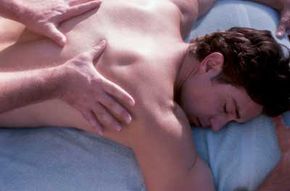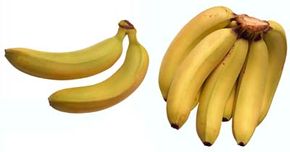It was just a pickup game of basketball with the guys, not a marathon. And it felt great to finally get back on the court. But a day and a half later, you can barely move. You're so stiff, it feels like you've aged 100 years nearly overnight. Every time you try to move, your muscles cry out in pain. What's going on?
Well, weekend warrior, you've overdone it, and your body is letting you know. Overworking muscles, especially muscles that aren't accustomed to much work in the first place, causes the muscle fibers to actually break down, and that's what's causing your pain. If you had been exercising regularly all along, slowly and gradually increasing the duration and intensity of your workouts, chances are that game of round ball wouldn't have left you feeling like you got hit by a truck.
Advertisement
In addition to the tiny tears that occur in muscle fibers during intense exercise, the muscles swell slightly, and byproducts of muscle breakdown accumulate. Together, they contribute to muscle strain, and the accompanying feeling of stiffness and soreness.
Another common source of muscle pain is a cramp, an acute spasm of the muscle that can send you to the ground clutching the offending muscle and howling in pain. Muscle cramps can be caused by anything that interferes with the mechanisms that cause muscles to contract and relax. The tight contraction of the muscle restricts the blood flow to the area, causing the intense pain of a muscle cramp.
Knowing how muscles contract and relax can help you understand why muscle cramps occur and how to prevent them. To cause a muscle to contract, the brain sends an electrical "contract" message through nerves to the muscle. When this signal reaches the muscle, the minerals sodium and calcium inside the muscle and potassium outside the muscle move, causing the signal to flow along the muscle and making it contract. For muscles to contract and relax properly, they need the right concentrations of these minerals as well as adequate supplies of sugar (glucose), fatty acids (components of fat), and oxygen.
If a muscle uses up its energy supply (called glycogen, which is the storage form of glucose), and if too many waste products have built up in the muscle, it may go into spasm. The spasm, in turn, slows the blood flow, causing pain.
While muscle soreness and cramps aren't generally life threatening, they can be uncomfortable and annoying and can dim your enthusiasm for physical activity, which in turn can negatively affect your overall health and well-being.
See the next section for some home remedies to ease muscle pain and prevent the problem from recurring.
For more information about remedies for pain, try the following links:
- To see all of our home remedies and the conditions they treat, go to our main Home Remedies page.
- Maybe you overdid it at the gym or maybe you just slept in a strange position, but we've all experienced sore muscles every now and then. Fortunately, Herbal Remedies for Muscle Pain has the information to get you back in the game.
- If you suffer from neck pain, read Home Remedies for Neck Pain for helpful tips.
- Home Remedies for Back Pain gives advice for treating a sore back at home.
- For information on coping with restless legs syndrome, read Home Remedies for Restless Legs Syndrome.
This information is solely for informational purposes. IT IS NOT INTENDED TO PROVIDE MEDICAL ADVICE. Neither the Editors of Consumer Guide (R), Publications International, Ltd., the author nor publisher take responsibility for any possible consequences from any treatment, procedure, exercise, dietary modification, action or application of medication which results from reading or following the information contained in this information. The publication of this information does not constitute the practice of medicine, and this information does not replace the advice of your physician or other health care provider. Before undertaking any course of treatment, the reader must seek the advice of their physician or other health care provider.
Advertisement



